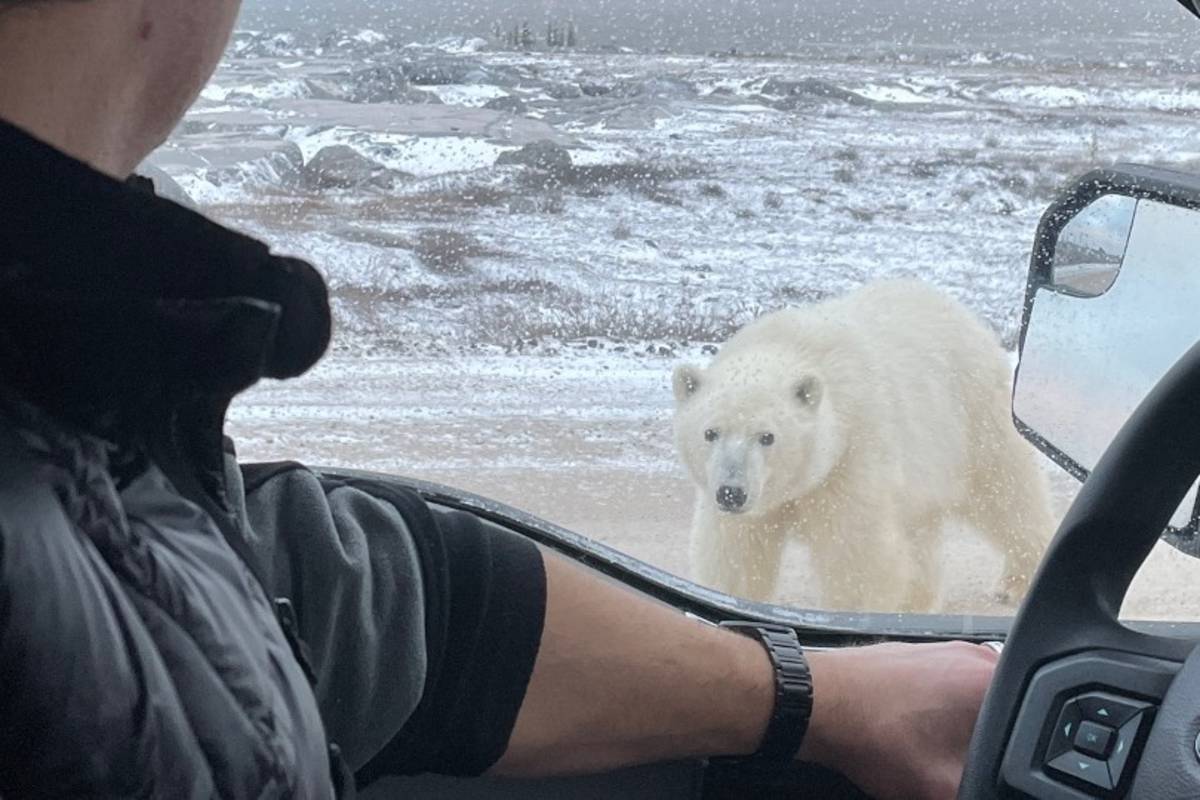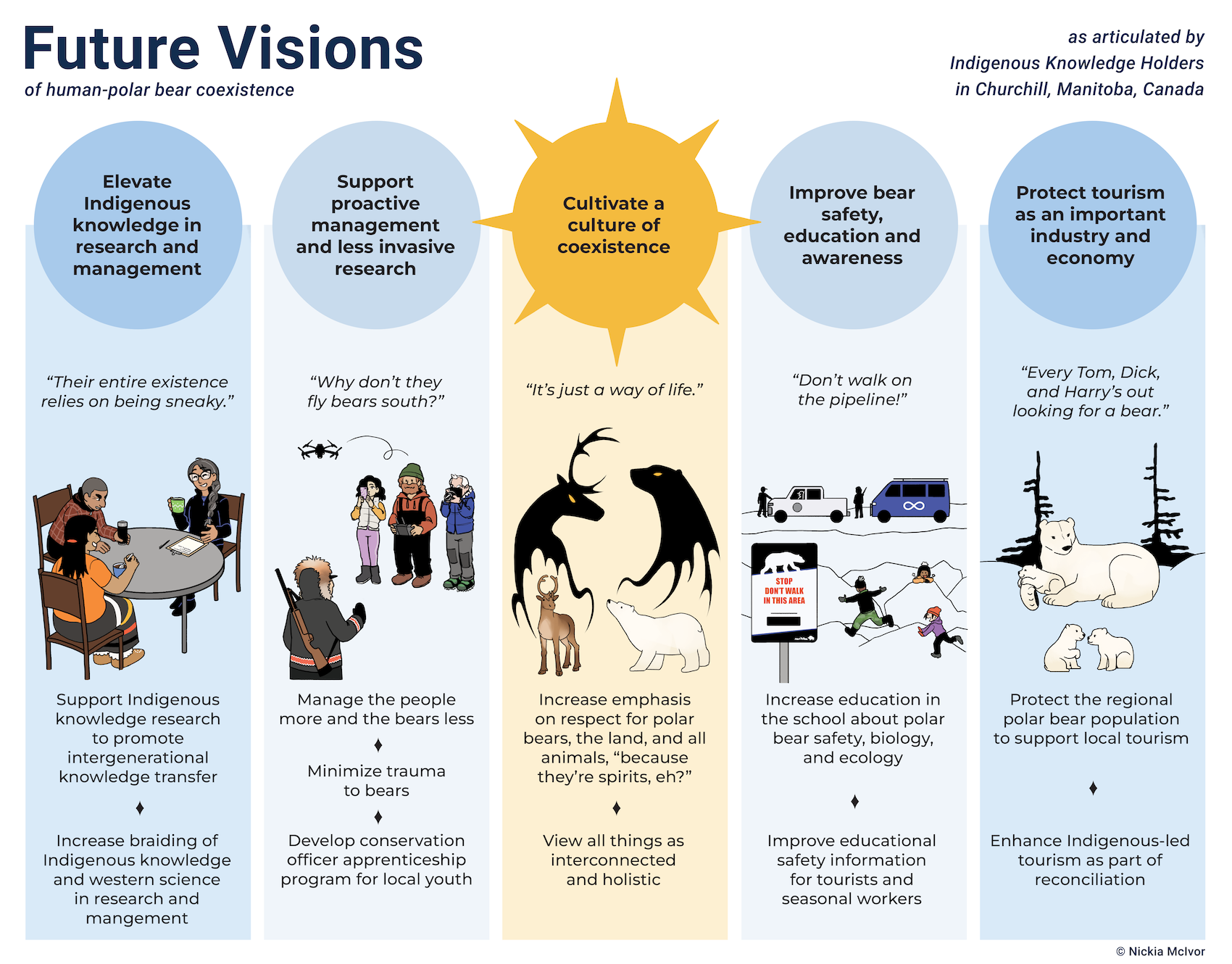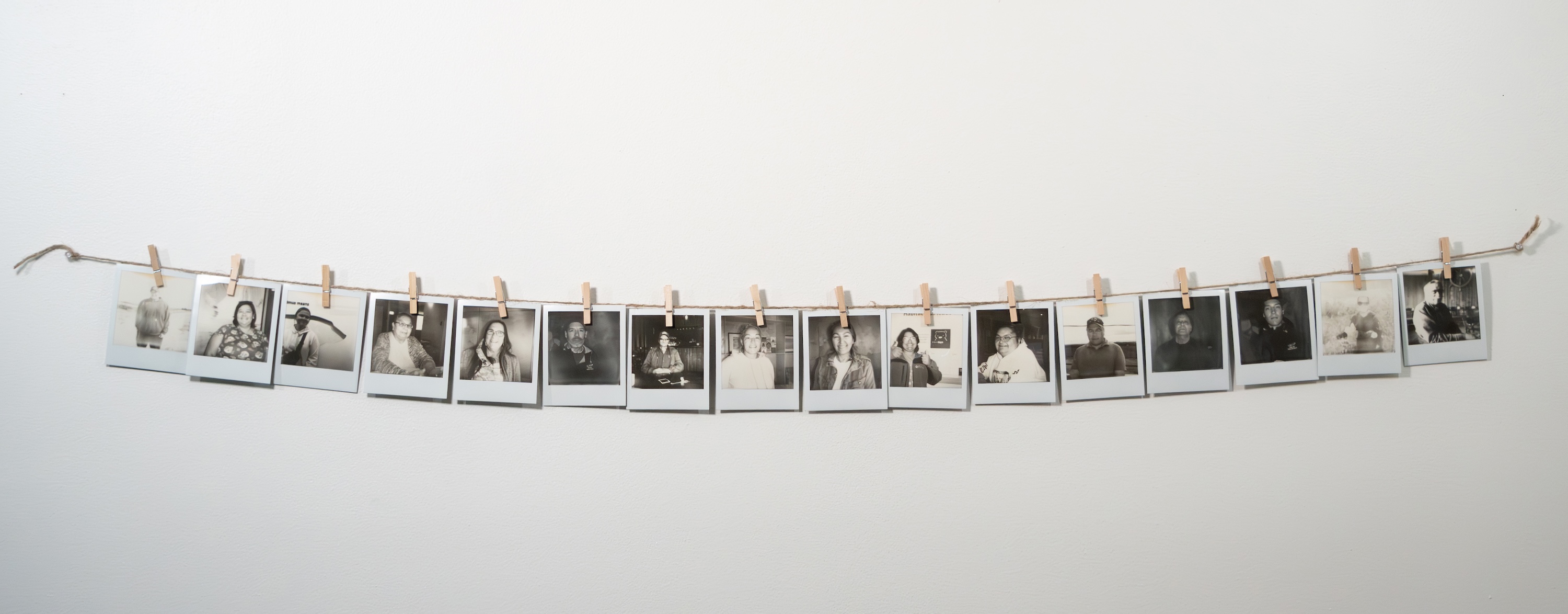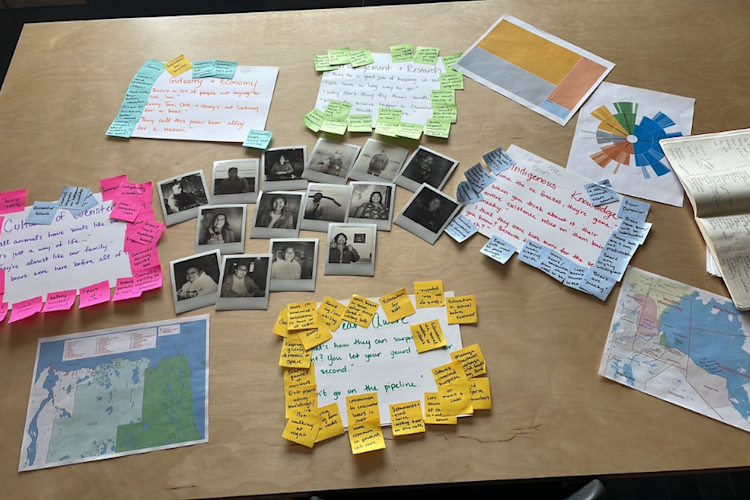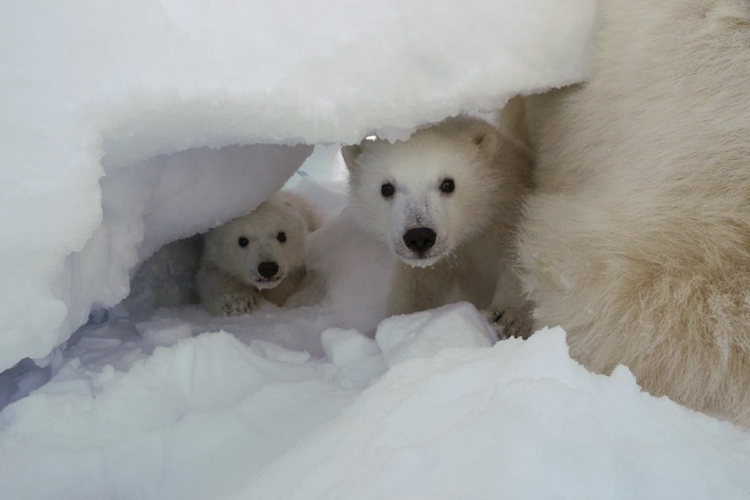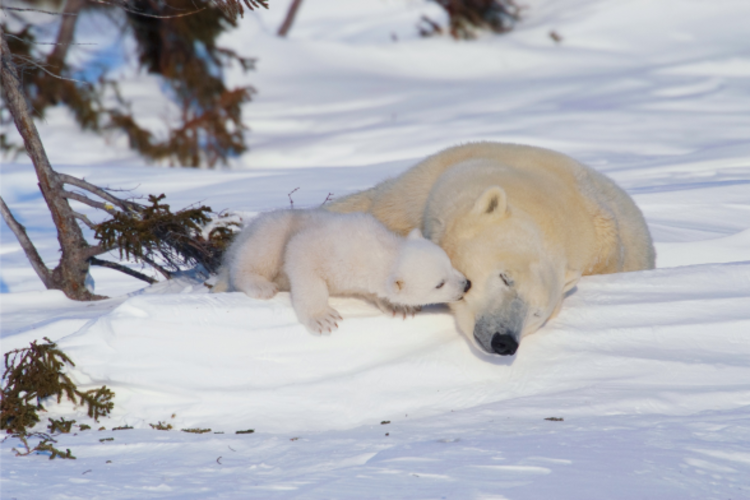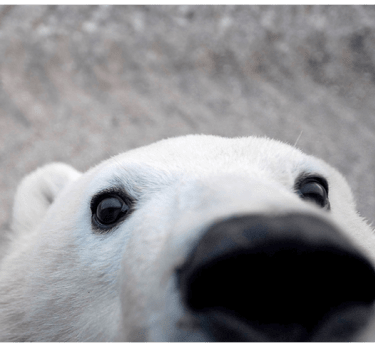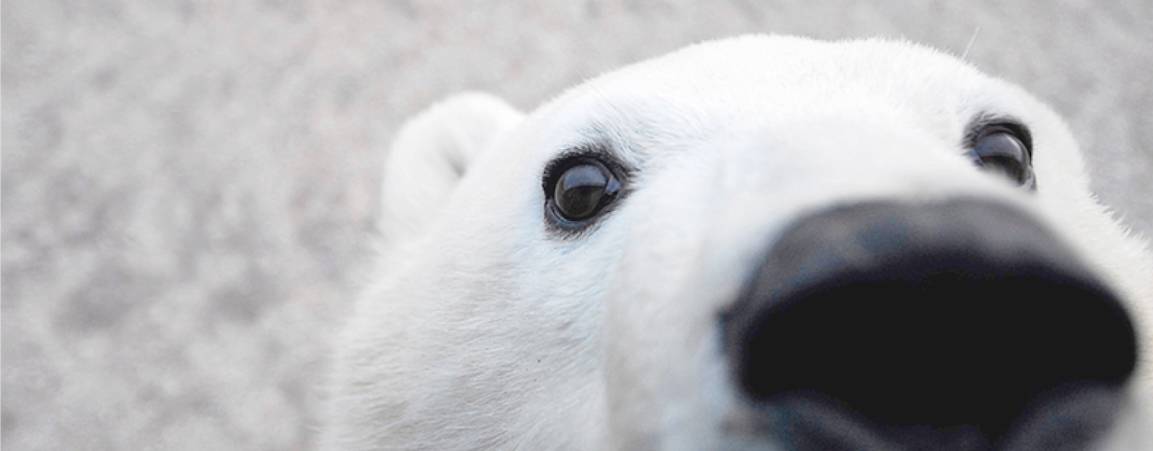CHURCHILL, MANITOBA, CANADA – Researchers representing Polar Bears International, Churchill’s Indigenous Knowledge Keepers, Environment and Climate Change Canada, and Royal Roads University have published a new academic study of Indigenous knowledge on human-polar bear coexistence in Nature Communications Earth & Environment: “Coexistence between people and polar bears supports Indigenous knowledge mobilization in wildlife management and research.” The study was conducted in Churchill, Canada, which, like many northern communities, faces growing concerns about increased polar bear encounters as climate change continues to melt the sea ice crucial to the survival of both polar bears and people. Churchill’s residents, over 91% of whom are Indigenous, have lived alongside polar bears for thousands of years. Despite extensive research on polar bears in this region, famously known as the "Polar Bear Capital of the World," few academic reports have been co-authored by Indigenous peoples or centered on local knowledge of polar bears. With knowledge holders representing Swampy Cree, Sayisi Dene, Métis, Sioux, and Inuit people living in Churchill, this report mixes methods from Indigenous ways of knowing and social sciences to advance wildlife conservation across the Arctic. Learn more about the report, and listen to podcasts featuring the contributors, here.
“One of the beautiful things that we've done with the research project is including the Elders who know the history of living with polar bears, and then we've also included the youth who gave us several really good pointers about what the future should look like for living with polar bears,” says Georgina Berg, co-author, and Cree Elder. Georgina is also a Polar Bears International Advisory Board Member and Churchill Indigenous Knowledge Keeper and emphasizes that, “Both Elders and youth agreed that the polar bears are like our family and that we must be respectful when living with polar bears. Many people said, you know, the bears were here first, and this is their home. We came and lived with them, so we need to be respectful.”
